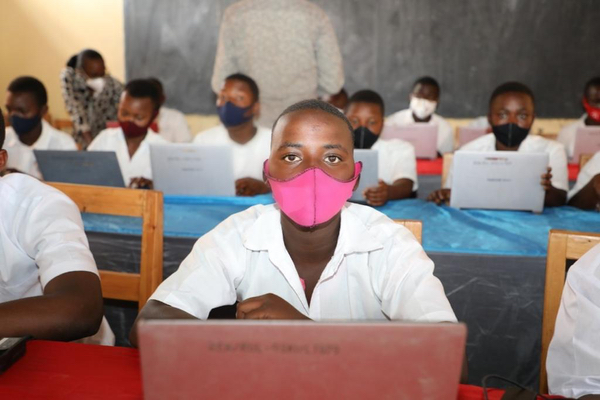
The Government of Rwanda and the World Bank Group signed a financial agreement for an Additional Financing of US$129.062 million for the Rwanda Quality Basic Education for Human Capital Development (QBE) Project. The financial agreement comprises a US$50 million IDA credit and a US$50 million grant, as well as a co-financing of a US$29.062 million grant from the Global Partnership for Education (GPE).
Over the last three years, with the support of QBE Project, Rwanda has registered unprecedented improvements in access to schools along with improved teaching and learning conditions. The country-wide expansion of school infrastructure has brought an estimated 2.07 million school-age children within 2 kms distance from home, and has reduced student to classroom ratio at primary level from 73 (2019) to 49 (2021). The project generated jobs for over 100,000 laborers; this came as a positive relief in the context of pandemic-induced socio-economic distress.
This additional financing builds on the success of QBE Project in reinforcing efforts to improve the quality of learning with greater focus on teacher competency in English and digital literacy, school inspection and quality assurance systems, access to reading materials, remedial education for at-risk students, and technology solutions for real-time monitoring and tracking of student learning gaps.
The objective is to take Rwanda from “access” to “achievement” by ensuring that when at school, children achieve high quality instruction and deliver better learning outcomes. Over the next five years, the project will build sustainable systems and practices to improve equity, efficiency, and effectiveness in the education sector. The financing will also support climate change risk adaptation and mitigation for the new schools and classrooms constructed under the QBE project.
This additional financing is a continuation of World Bank’s support for the Government of Rwanda’s Vision 2050 agenda. It aims to play a critical role in reversing the learning losses incurred during the COVID-19 pandemic. “In 20 years, approximately 46 percent of Rwanda’s workforce aged 20-65 years will comprise individuals who were either in school or under the age of 5 during the pandemic, thus signaling the importance of investments and reforms done today to secure and improve learning”, said Rolande Pryce, World Bank Country Manager for Rwanda.
The Rwanda Quality Basic Education for Human Capital Development Project aligns well with the Government’s Education Sector Strategic Plan (ESSP: 2018-24) and the National Strategy for Transformation (NST1: 2017-24), as well as with the World Bank’s FY21-26 Country Partnership Framework for Rwanda, especially on its first objective to improve human capital.
